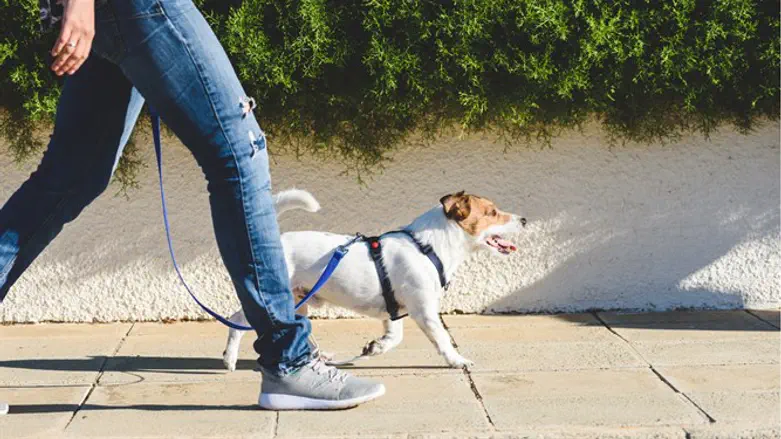
Every morning, there are people in my congregation who are kind enough to drive me to the synagogue for the morning services. I meet them at the corner, and since I do not like that people should have to wait for me, I usually am there a few minutes early. This allows me to survey the scene and gather my thoughts before the moments of prayer and contemplation.
I have noticed over the past few months that there are a number of regular visitors to my corner. They are people who are walking their dogs. The dogs seem very satisfied and are docile, and they do what dogs are meant to do. But the people who are walking them, who have them on a leash, range in their emotions, according to my observation, from being absolutely bored to being frustrated at the fact that they have to get up early in order to walk the dog.
Having a pet in the house is a great responsibility. Once one assumes it, there are myriad consequences to one's everyday life occasioned by the fact that there is an animal that is now part of the family. The dogs that I notice here in Israel are rather tame. They are quiet, and they do not bother passersby or rabbis who are standing on the corner waiting for a ride to the synagogue. However, I have noticed that many of the people who are walking their dogs pass by me muttering strange sounds and are completely dissatisfied at the role that they now have to fulfill.
The Torah and Jewish tradition does not have much to say about having pets in the house. In past times, when the world was agricultural and rural, people had a familiarity with animals, but usually with larger animals such as horses, mules, bulls and cows and sheep. However, these animals did not lend themselves to becoming pets. Having an animal in the house seemed to be a luxury restricted only to the nobility, the aristocracy and the wealthy. Jews generally did not have any pets whatsoever and certainly not dogs.
I think the reason that dogs were not popular with Jews is because they were used in anti-Semitic pogroms to attack Jews and to ferret out those who were in hiding. In our time, meaning over the last century since the Holocaust, the Germans were famous and notorious for using large dogs to round up hapless inmates, and also in extreme cases, they had wild dogs actually kill and murder innocent people.
When I grew up in Chicago, no Jew that I knew of had any sort of pet in the house, let alone a dog. However, over the last 40 years, the situation has changed. As people became more affluent and as children became more demanding, almost every home had to undergo a period of time with a pet in the house.
Sometimes the pet was a bird and that required great care, and birds were especially susceptible to sudden death from disease. Because this happened in our house once, the children never again wanted to have a pet. A dead bird can cure a lot of things. However, we had neighbors that had dogs as pets. Now, if you do not like dogs, there is no assurance in the world that the dog will always be tame and lovable and won’t hurt you.
There was a great German Shepard that lived next door to us, and we were always terrified of him even though the owner assured us time and again that the dog was completely friendly and that we should not be impressed by his size and especially by the size of his teeth. Nevertheless, through various machinations, we all overcame our fear of dogs, but no one in the house or in my family until today has a dog as a pet.
I realize that for people who live alone, many times a pet is a lifesaving creature. It provides some sort of companionship, and it also provides a type of focus that prevents one from feeling overly lonely and distraught.
Here in Israel, cats abound in the street. The dogs that I notice pay very little attention to the cats, though the cats are fairly wary when a dog approaches. It seems that in the Middle East, one must be able to accommodate oneself to the presence of one's enemies on a regular basis and not be too overly concerned about the matter. So I find it interesting as I stand on the corner to view those dogs that are walking by and the owners that are holding them on a leash. I have the definite impression that the dog feels that it is a people walker rather than the people feeling that they are dog walkers. In any event, it seems clear that dogs are here to stay as pets and that they serve a great social and psychological service that is necessary for many Israelis. I am, however, still mired in the culture of my youth and am neither a dog owner nor a dog walker.
